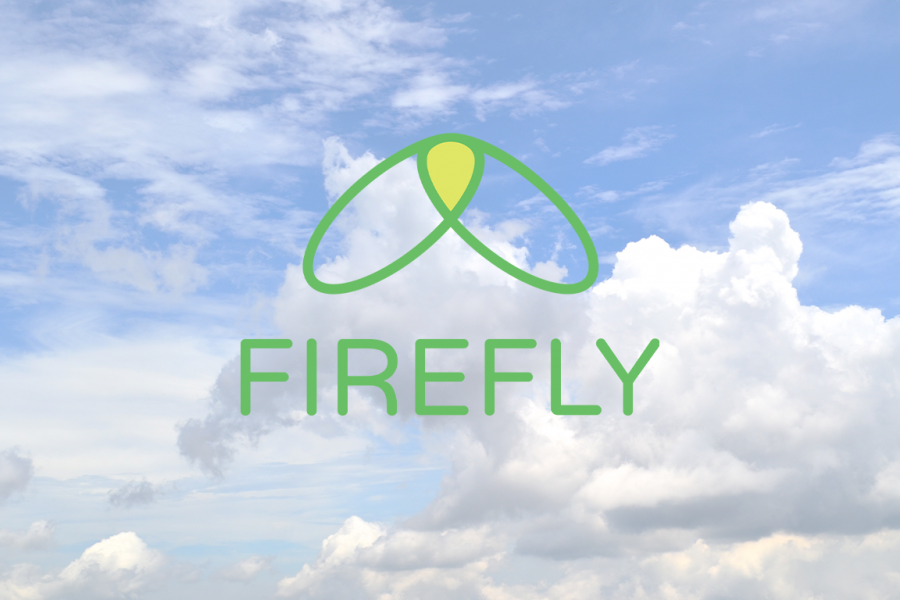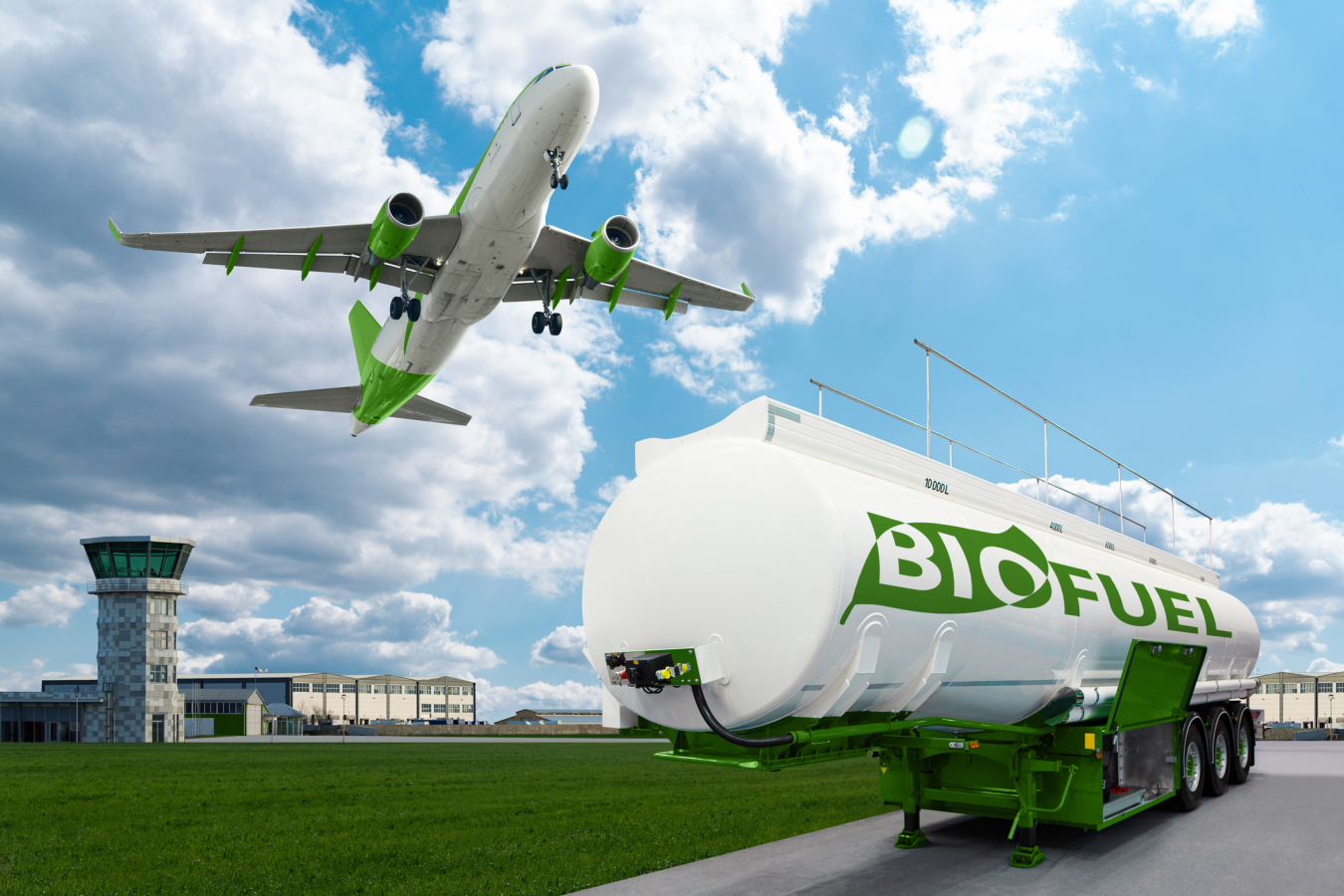Sustainable Aviation Fuel (SAF) has been an important and pertinent topic within aerospace communities for a while now, reaching a new level of importance in 2024 amidst rising jet fuel prices. Globally, multiple nations, including the United States and the United Kingdom, have shifted their interest to an emissions-free aviation industry in the coming decades.

The UK released the “jet zero” campaign to reduce carbon-based emissions to zero by the year 2050. However, unlike other industry sectors such as retail, home, and local power grids, airplanes have not yet located a consistent non-carbon-based aviation fuel source, with multiple SAFs still in their infancy. This has led to the research and investigation of waste-based sources as an alternative to traditional fuel. Conventional commercial aviation accounts for about 2.5 percent of global carbon emissions.
Waste-based fuel sources are what you would think: energy sources that are derived from the carbon emissions of various organic materials. Additionally, the combustion of organic materials aids in converting CO2 and green hydrogen, both valuable in producing SAF. Other waste-based fuels include repurposing conventional food oils, whether when used or tarnished and converting them into a substantive fuel.

In early 2024, a UK-based company, Firefly Green Fuels, explored using poop-powered aircraft. Sewage, as described by CEO James Hygate, is a low-cost material with loads of it worldwide. Currently, most sewage globally is simply collected and displaced into other places rather than processed for some form of energy gain.
Through hydrothermal liquefaction, human waste can be repurposed as a carbon-rich biochar, a substance that can be used in fertilizers or as crude oil. Original small-scale studies indicate that the SAF could have as much as 90 percent less carbon footprint than traditional jet fuel.

Although scaling for Firefly will be a large undertaking, the company projects that it can produce 100,000 tons of the biochar annually by 2030. Through UK government grants and private investment by Wizz Air, the company will look to aid the need for alternative fuel. However, even at its projections, the waste-based SAF would only contribute about 5 percent of the total appetite for jet fuel in the UK alone. Although other companies are also entering the space, quantity is still far less than demand, leading to an increase in price.
For the jet zero campaign, SAF flights are slowly coming into effect, as SAF flights produce, on average, 70 percent less emissions than traditional jet fuel. Other alternative fuels, such as E-Kerosene, are also growing in popularity. Biofuels in different capacities and research into electric-powered commercial airliners are expanding. Even if the growth of waste-based SAFs and other biofuels might decrease in the airline sector, the same principles can be applied to smaller engines, realistically on motorbikes and smaller automobiles.
Why British Airways BA274 Braved the Atlantic After Losing a Tire » U.S. Greenlights Final Certificate Transfer Between Mesa and Republic Airways » Air India Pulls Boeing 787-9 From Service After Serious Fuel Switch Discrepancy Report »
Comments (0)
Add Your Comment
SHARE
TAGS
NEWS Sustainability Sustainable Aviation Fuel SAF Sustainable Aviation Future Innovation UK United Kingdom StartupRECENTLY PUBLISHED
 Air Cambodia Joins Boeing Family With Major Order For Up To 20 737 MAX Jets Announced At Singapore Airshow
In a move that signals a bold new chapter for Cambodian aviation, Boeing and Air Cambodia officially unveiled a landmark agreement today, February 3, 2026, identifying the Southeast Asian carrier as the previously undisclosed customer for up to 20 of 737-8 MAX aircraft.
NEWS
READ MORE »
Air Cambodia Joins Boeing Family With Major Order For Up To 20 737 MAX Jets Announced At Singapore Airshow
In a move that signals a bold new chapter for Cambodian aviation, Boeing and Air Cambodia officially unveiled a landmark agreement today, February 3, 2026, identifying the Southeast Asian carrier as the previously undisclosed customer for up to 20 of 737-8 MAX aircraft.
NEWS
READ MORE »
 FedEx Airbus A300 Freighter Forces Emergency Return to Norfolk After Engine Shutdown
Aviation safety investigators and FedEx Express maintenance teams are converging at Norfolk International Airport (ORF) today, February 3, 2026, following a serious propulsion failure involving an Airbus A300-600 freighter. The aircraft was forced to perform an emergency return and overweight landing after the flight crew reported a total engine shutdown shortly after departure.
NEWS
READ MORE »
FedEx Airbus A300 Freighter Forces Emergency Return to Norfolk After Engine Shutdown
Aviation safety investigators and FedEx Express maintenance teams are converging at Norfolk International Airport (ORF) today, February 3, 2026, following a serious propulsion failure involving an Airbus A300-600 freighter. The aircraft was forced to perform an emergency return and overweight landing after the flight crew reported a total engine shutdown shortly after departure.
NEWS
READ MORE »
 WestJet Boeing 737 Aborted High Speed Takeoff After Pilot Seat Shifts Fully Backwards
Safety investigators have detailed a harrowing incident in which a WestJet Boeing 737-700 was forced to execute a high-speed rejected takeoff (RTO) after the first officer’s seat unlatched and slid away from the flight controls.
NEWS
READ MORE »
WestJet Boeing 737 Aborted High Speed Takeoff After Pilot Seat Shifts Fully Backwards
Safety investigators have detailed a harrowing incident in which a WestJet Boeing 737-700 was forced to execute a high-speed rejected takeoff (RTO) after the first officer’s seat unlatched and slid away from the flight controls.
NEWS
READ MORE »



